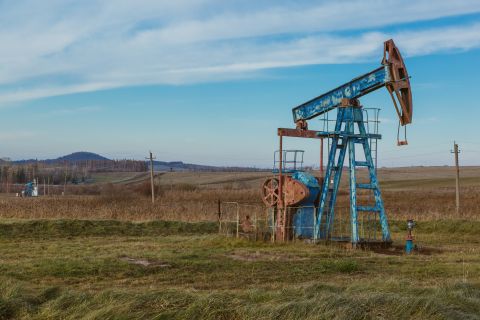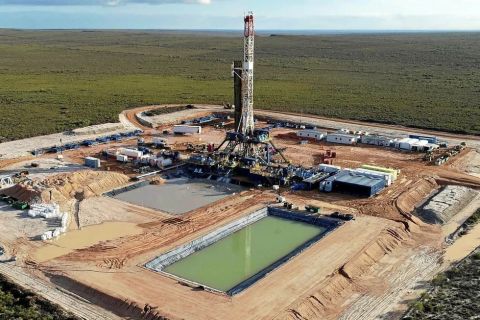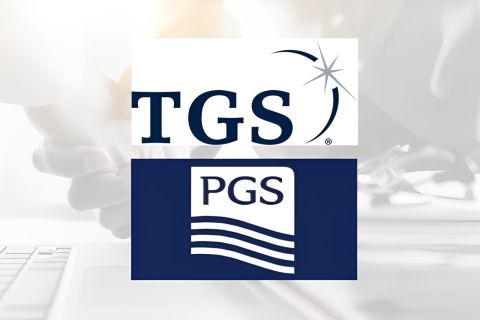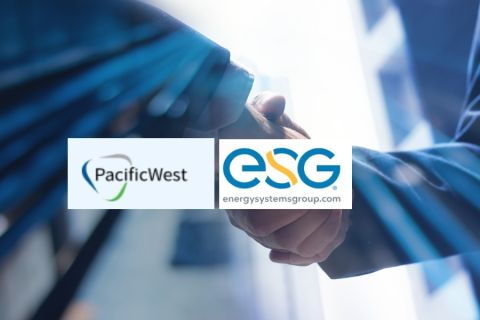Continental Resources Inc. on Feb. 26 forecast lower-than-expected free cash flow for the year despite keeping capital spending flat, sending shares of the shale producer down 17% in after-market trading.
The weak outlook comes as energy investors have been pressuring companies to cut back spending and instead shore up cash for dividends and share buybacks.
The oil and gas producer also forecast 2020 production to grow between 4% and 6%, or compound annual production growth rate of 10%, below the company's five-year vision target of 12.5% growth per year.
Investors shrugged off a 2 cents beat on adjusted quarterly profit as a 12.8% surge in production helped offset lower prices for natural gas.
The results were the last under legendary U.S. oilman Harold Hamm who stepped down as Continental's CEO at the end of last year to become its executive chairman.
Hamm, who owns 77% of Continental, was replaced by William Berry, a former ConocoPhillips Co. executive and Continental board member.
Continental forecast free cash flow between $350 million and $400 million for 2020, below analysts' average estimate of $500.9 million, according to Refinitiv IBES estimates.
The outlook was based on $55 per barrel price estimate for U.S. WTI crude, while U.S. oil futures were trading below $49 a barrel on Feb. 26.
For a $5 per barrel drop below the estimate, Continental said free cash flow would drop by $300 million.
Continental, which operates in the Bakken in North Dakota and Montana as well as the STACK and SCOOP plays in Oklahoma, said full-year oil production would range between 198,000 and 201,000 barrels per day. It plans to spend $2.65 billion in 2020.
Fourth-quarter production rose 12.8% to 365,341 barrels of oil equivalent per day, while average net sales prices fell 9.8% to $33.49 per barrels of oil equivalent.
Net income attributable to the company fell to $193.9 million in the three months ended Dec. 31 from $197.7 million a year earlier. On a per share basis, profit remained flat at 53 cents.
Adjusted quarterly profit of 55 cents per share beat analysts' average estimate of 53 cents per share.
Total revenue rose 4% to $1.2 billion, slightly higher than expectations of $1.14 billion.
Recommended Reading
Brett: Oil M&A Outlook is Strong, Even With Bifurcation in Valuations
2024-04-18 - Valuations across major basins are experiencing a very divergent bifurcation as value rushes back toward high-quality undeveloped properties.
Marketed: BKV Chelsea 214 Well Package in Marcellus Shale
2024-04-18 - BKV Chelsea has retained EnergyNet for the sale of a 214 non-operated well package in Bradford, Lycoming, Sullivan, Susquehanna, Tioga and Wyoming counties, Pennsylvania.
Triangle Energy, JV Set to Drill in North Perth Basin
2024-04-18 - The Booth-1 prospect is planned to be the first well in the joint venture’s —Triangle Energy, Strike Energy and New Zealand Oil and Gas — upcoming drilling campaign.
PGS, TGS Merger Clears Norwegian Authorities, UK Still Reviewing
2024-04-17 - Energy data companies PGS and TGS said their merger has received approval by Norwegian authorities and remains under review by the U.K. Competition Market Authority.
Energy Systems Group, PacificWest Solutions to Merge
2024-04-17 - Energy Systems Group and PacificWest Solutions are expanding their infrastructure and energy services offerings with the merger of the two companies.




